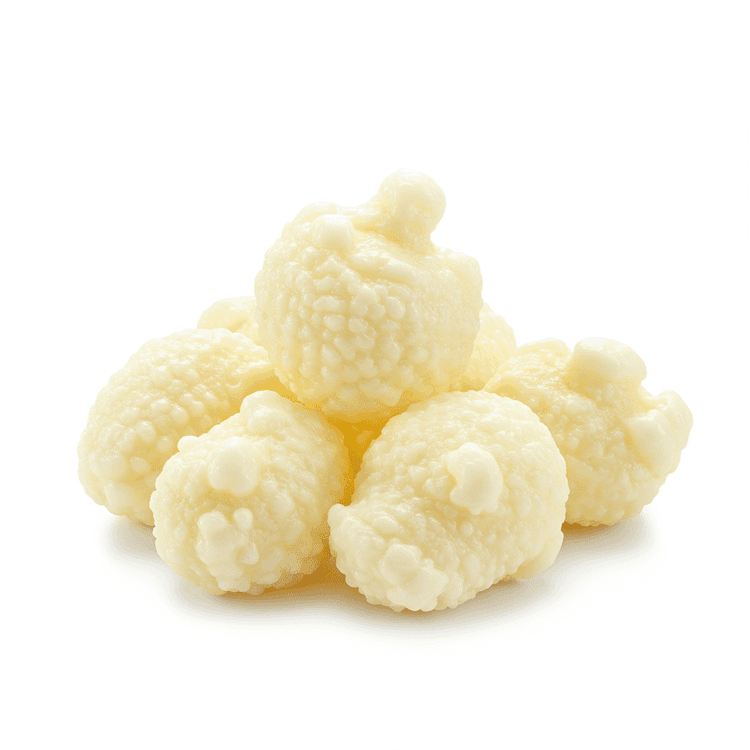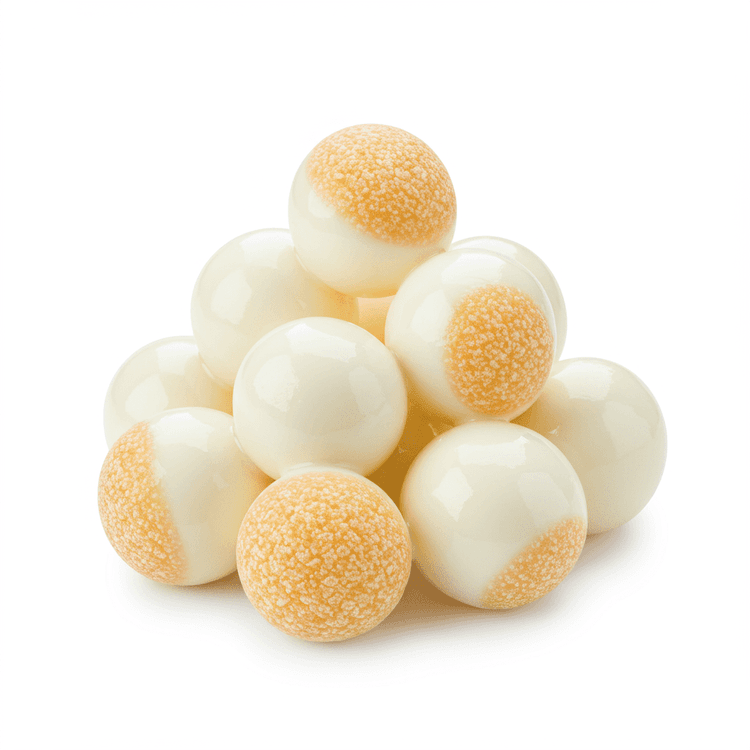
Kefir Grain
Kefir grains are small, gelatinous clusters that resemble tiny cauliflower florets, used as a starter culture to ferment milk or water into kefir. These probiotic-rich grains are a symbiotic colony of bacteria and yeast (SCOBY), offering a tangy, slightly sour flavor and a creamy texture when used to ferment dairy. Known for their health benefits, kefir grains are a powerhouse of gut-friendly probiotics, making them a popular choice for those seeking natural ways to improve digestion and immunity.
Common Uses
- Used to ferment milk into creamy, tangy kefir, a probiotic-rich drink that supports gut health.
- Added to non-dairy alternatives like coconut milk or almond milk to create vegan kefir options.
- Utilized in water kefir recipes by fermenting sugar water or fruit juice for a fizzy, probiotic beverage.
- Incorporated into smoothies or salad dressings for a tangy, health-boosting twist.
- Employed in baking recipes as a substitute for buttermilk or yogurt to add a subtle tang and tender texture to baked goods.
- Used to create probiotic-rich marinades for meats or vegetables, enhancing flavor and tenderness.
Health Benefits
- Supports gut health by promoting the growth of beneficial probiotics.
- Enhances digestion and may help alleviate symptoms of lactose intolerance.
- Boosts the immune system with its rich array of vitamins and minerals.
- Contains bioactive compounds that may have anti-inflammatory properties.
- Provides a good source of protein and essential amino acids for muscle repair and growth.
- May improve bone health due to its calcium and vitamin K2 content.
Substitutes
Chefadora AI is here.
Experience smarter, stress-free cooking.
Storage Tips
Kefir grains should be stored in a clean, airtight container with fresh milk or water (depending on the type of kefir grain) to keep them active. If not in use, refrigerate them in milk for up to 2 weeks, ensuring the milk is changed every few days to maintain freshness. For longer storage, freeze the grains in a sealed bag or container with a small amount of milk to preserve their viability. Always rinse and reactivate frozen grains before use.
Marnirni-apinthi Building, Lot Fourteen,
North Terrace, Adelaide, South Australia, 5000
Australia

